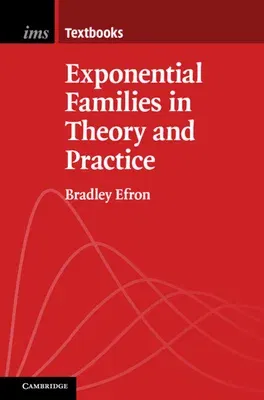Bradley Efron
(Author)Exponential Families in Theory and PracticePaperback, 15 December 2022

Qty
1
Turbo
Ships in 2 - 3 days
Only 2 left
Free Delivery
Cash on Delivery
15 Days
Free Returns
Secure Checkout

Part of Series
Institute of Mathematical Statistics Textbooks
Print Length
262 pages
Language
English
Publisher
Cambridge University Press
Date Published
15 Dec 2022
ISBN-10
1108715664
ISBN-13
9781108715669
Description
Product Details
Author:
Book Format:
Paperback
Country of Origin:
GB
Date Published:
15 December 2022
Dimensions:
21.79 x
13.79 x
0.99 cm
ISBN-10:
1108715664
ISBN-13:
9781108715669
Language:
English
Location:
New York
Pages:
262
Publisher:
Weight:
408.23 gm